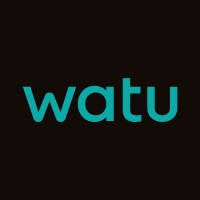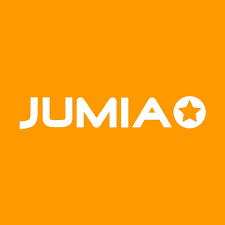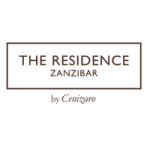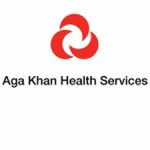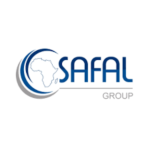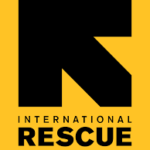
The International Rescue Committee (IRC) responds to the world’s worst humanitarian crises, helping to restore health, safety, education, economic wellbeing, and power to people devastated by conflict and disaster. Founded in 1933 at the call of Albert Einstein, the IRC is one of the world’s largest international humanitarian non-governmental organizations (INGO), at work in more than 50 countries and more than 25 U.S. cities helping people to survive, reclaim control of their future and strengthen their communities. A force for humanity, IRC employees deliver lasting impact by restoring safety, dignity and hope to millions. If you’re a solutions-driven, passionate change-maker, come join us in positively impacting the lives of millions of people world-wide for a better future.
The Role
We are seeking an experienced and ambitious communications professional to develop and drive forward the Communications Strategy for the ‘What Works to Prevent Violence – Impact at Scale’ Programme, ensuring engagement with the Programme from key audiences and raising its profile and influence.
What Works to Prevent Violence – Impact at Scale (What Works 2)
The What Works 2 Impact at Scale Programme (WW2) is a global flagship seven-year Programme funded by the UK’s Foreign, Commonwealth and Development Office (FCDO) to improve prevention and response to violence against women and girls. The Programme will build on the success of its predecessor (What Works 1) to prevent and contribute to eliminating violence against women and girls (VAWG) by producing and using evidence of what prevents violence and then communicating it to decision-makers and a range of different audiences to influence a more effective, scaled-up global response to end VAWG.
The Consortium delivering the WW2 Programme encompasses five partners, including the International Rescue Committee (IRC), Raising Voices, CARE International UK, Social Development Direct, and SAMYA/ Breakthrough. This role is hosted by IRC and located within the Violence Prevention and Response Unit (VPRU) at IRC. The VPRU works to reduce people’s vulnerability to and support their recovery from violence and promote transformative work for a future free from violence. The role is part of the WW2 Programme’s External Engagement and Influencing team.
Job Summary
The position will lead the communication, media and digital components of this exciting global flagship Programme and work with the External Engagement and Influencing team to increase the capacity of the Programme in both its external and internal communications globally, and in the Sub-Saharan Africa, MENA and Asia regions. Working closely with the WW2 External Engagement and Influencing team and the Programme team, the position will lead the development and implementation of the Communications Strategy within the EEI pillar, supporting advocacy and influencing work to advance strategic change through engaging key stakeholders and building solidarity and shared agendas with the wider VAWG prevention field. The position will be successful at creating high quality communications materials to maximise the impact of the knowledge and learning from WW2 funded projects, raising WW2’s profile through greater brand recognition and expanded audience reach. The person will also be responsible for tracking Programme wide campaign analytics and maintaining digital media archives. 20% of the time will be spent supporting some logistical coordination aspects of the Programme, such as organizing donor visits to partners, and supporting the WW2 Director in communicating to our global expert board through events and meetings.
Responsibilities
- Developing and delivering an effective communications strategy (30%)
- Work with the EEI, research consortium and fund management team to develop and drive forward the Communications Strategy.
- Ensure strategic communications support to the global EEI strategy, translation of evidence emerging from the grants and studies into easily accessible and user-friendly forms, and effective dissemination to key targets to ensure maximise influencing impact.
- Lead on the creation and implementation of a social media and website strategy, communications content, press releases, social media and blog content.
- Managing social media channels, website and email (30%)
- Lead the day-to-day management of all social media accounts for the Programme (X, LinkedIn, Facebook).
- Lead on maintaining a social media brand for the WW2 Programme across several platforms throughout the Programme lifetime, including communicating and social grant funding windows and webinars, maximizing mainstream media from results of the grantee projects and wider Programme in years 4-7, and using social media to engage WW2 project stakeholders.
- Lead on managing the What Works 2 website, updating, and editing and uploading key Programme documents to the Knowledge Hub (newsletter; reports; briefs) as required.
- Monitor and manage the What Works 2 email account, including responding to emails and seeking input as appropriate, and monitoring newsletter sign-ups.
- Producing and managing multimedia and communications content (20%)
- Ensure information is presented in an attractive and engaging format that can be shared with the key targets and maintain a record of content produced.
- Work closely with the technical advisors, grant managers and Programme team to visit field sites to identify, collect, capture, and document project activities in the form of case studies, including the collection of photos.
- Gather information to support advocacy initiatives such as related case studies and evidence from the field as requested.
- Support the EEI team compile and finalize regular reports for various audiences and identifying trends or highlights to include.
- Produce staff spotlights and other internal communications outputs as required.
- Provide visibility and briefing material packages for all high-level/external visits, including WW II donors, other delegations, as needed.
- Provide multimedia and communications content for the WW 2 Programme, including development of a Programme branding guide and popularizing materials for activist communities.
- Identify photography opportunities as well as support the hiring of freelance photographers and videographers and orienting them with the principle of informed consent. Manage content collection shoots as needed.
- Ensure that all materials adhere to the WW2 Programme’s branding requirements and are in line with donor requirements where applicable.
- Consult closely with the EEI team, grant managers and technical advisors to support information requests and collect material and draft stories required for donor visibility requirements.
- Maintain a dynamic ‘story list’ to showcase WW2 Programme impact.
- Work with other WW2 pillars on internal communications priorities such as newsletters as requested.
- Provide graphic design and formatting support to ad hoc donor- and external/public- facing Programme documents (e.g., reports, briefs, templates).
- Planning relevant events and logistics (20%)
- Event coordination and planning
Provide support to planning, coordination and delivery of What Works 2 events (events, campaigns, workshops, webinars, trainings), external events that the programme will have a presence at (conferences, working groups etc both virtual and in person), and Comms focused visits, including donor visits. Where required, organize travel and logistics arrangements.
- Capturing comms impact for donor reporting
Provide support to the Programme Coordinator on quarterly donor reporting (e.g., compiling digital media metrics, editing, and writing relevant sections of the report).
Provide support during FCDO Annual Review process and meetings, including case studies, highlighting ‘good news’ stories, and responding to ad-hoc queries from FCDO programme and press teams.
Reporting
The Communications and Digital Officer will report directly to the WW2 Programme Coordinator with dotted line reporting to the EEI Co-Leads who will provide technical supervision.
Requirements
- A bachelor’s degree in communications, journalism, English, public relations or another related field from an accredited university.
- Willingness and ability to travel regularly
- Knowledge of/experience with graphic design and social media photography, videography
- Excellent writing, editing and proofreading skills; adept at writing clean, engaging, jargon-free copy for a range of channels
- Strong communication and interpersonal skills and the ability to establish positive working relationships with colleagues in different teams
- Good organisational and time management skills and the ability to work to deadlines, prioritise and multitask in a fast-paced environment.
- Fluent written and spoken English required. Knowledge of French or Arabic an added advantage
Experience
- A Minimum of 3-6 years of professional experience in a similar role
- Experience / knowledge of developing and implementing communications strategies with an international focus.
- Experience / knowledge of online and other tools for monitoring media coverage and impact
- Excellent IT skills, including Advanced Word, Outlook, Excel, PowerPoint and SharePoint. Strong Excel skills a particular advantage
- Experience working with quantitative and digital metrics data (desirable)
- Experience of using social media for communications and advocacy
Working Environment
Standard office work environment with trips to the field to visit program activities. Hybrid and remote working options are possible.
Compensation
Posted pay ranges apply to UK-based candidates. Ranges are based on various factors including the labor market, job type, internal equity, and budget. Exact offers are calibrated by work location, individual candidate experience and skills relative to the defined job requirements.
Standard of Professional Conduct:The IRC and the IRC workers must adhere to the values and principles outlined in the IRC Way – our Code of Conduct. These are Integrity, Service, Accountability, and Equality.
Commitment to Gender, Equality, Diversity, and Inclusion: The IRC is committed to creating a diverse, inclusive, respectful, and safe work environment where all persons are treated fairly, with dignity and respect. The IRC expressly prohibits and will not tolerate discrimination, harassment, retaliation, or bullying of the IRC persons in any work setting. We aim to increase the representation of women, people that are from country and communities we serve, and people who identify as races and ethnicities that are under-represented in global power structures.




